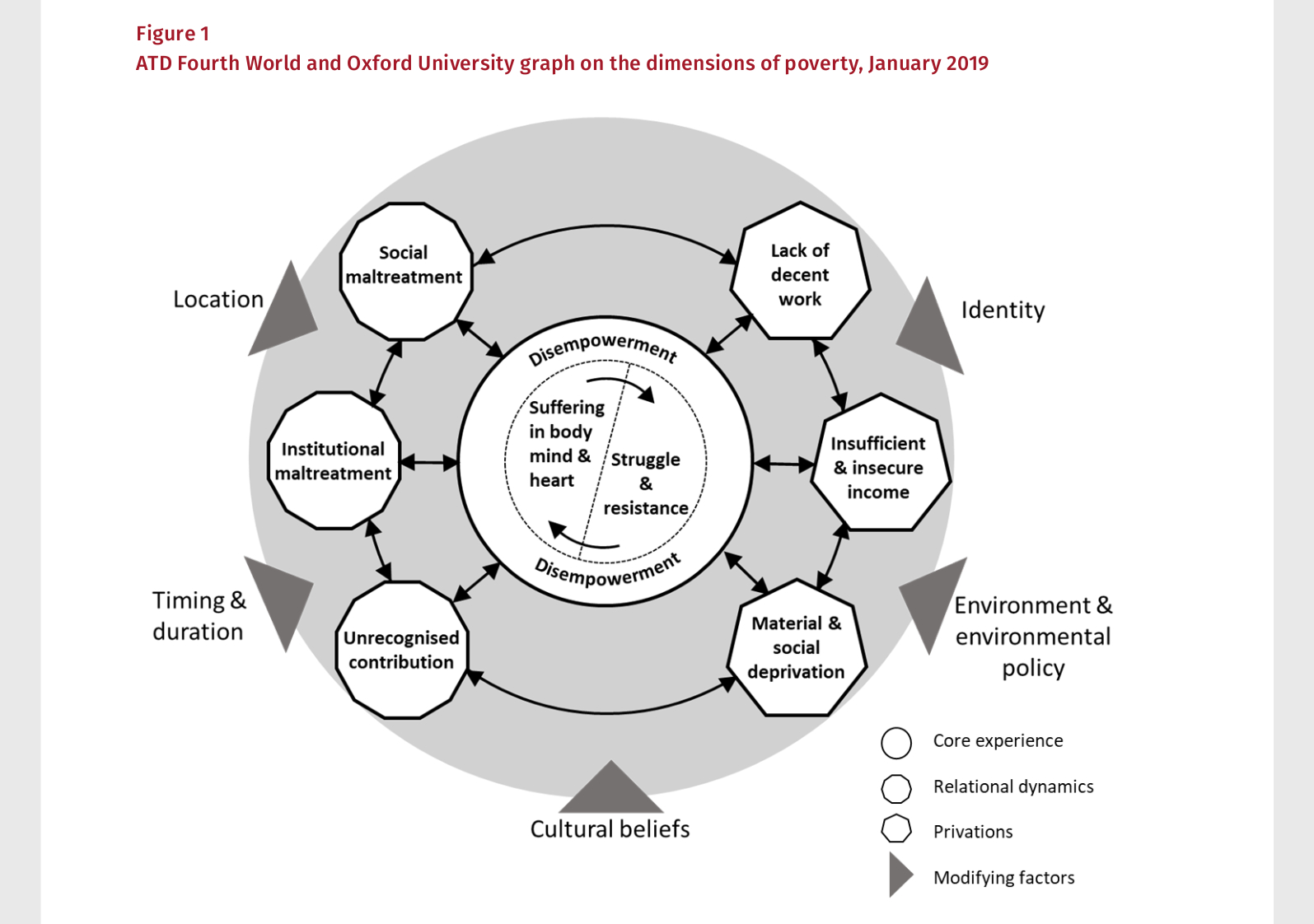By Xavier Godinot, International Movement ATD Fourth World
"For the first time...research places a bridge across [the] gulf in the measurement approaches to poverty in rich and poor countries…allowing us to see poverty through a single perspective…The research shed light on the hidden dimensions of poverty, the parts that we obviously don’t see, that are not easily observable: the stigma; the prejudice; the discrimination of those living in poverty; the problems and obstacles that they regularly encounter; how poor people are treated; how isolated they are; how disempowered they are… and how isolated they are made to feel by the rest of us."
(Angel Gurria, Secretary General, OECD, 10 May 2019)
Angel Gurria was speaking at the launch of a research report, The Hidden Dimensions of Poverty, [fn] The research was conducted by six national teams and coordinated by Marianne De Laat, Xavier Godinot and Alberto Ugarte from the International Movement ATD Fourth World; and Rachel Bray and Robert Walker from the University of Oxford. The full report can be downloaded in English, French or Spanish at www.atd-fourthworld.org/wp-content/uploads/sites/5/2019/05/Dim_Pauvr_eng_FINAL.pdf. [/fn] which fundamentally challenges global conceptions of the nature of poverty. This participatory research, led by ATD-Fourth World and the University of Oxford, has sought to refine the understanding and measurement of poverty by engaging with people directly experiencing poverty, practitioners and academics.
The 2030 Agenda recognizes that poverty is multidimensional. However, apart from income poverty, hitherto these dimensions have not been well-specified, several of them have gone unrecognized, and the ways in which they all interact to shape the experience of poverty has not been properly understood.
The research has involved teams in Bangladesh, Bolivia, France, Tanzania, the United Kingdom and the USA. People with direct experience of poverty, academics and practitioners, worked together as equals. The research process – termed Merging of Knowledge – has made possible a transformation in thinking at individual, community and national levels through the generation and sharing of knowledge.
Reaching out to listen to literally hundreds of people experiencing poverty, researchers combined their knowledge with that of academics and practitioners through a process of multiple discussions in which the knowledge held by each group has been collectively challenged and evaluated. The result of each national process is a set of dimensions able to define poverty in that country, as required to meet SDG target 1.2 to reduce poverty in all of its dimensions, according to national definitions.
Comparing the six country-level sets of poverty dimensions through face-to-face discussions involving representatives of the national teams, it became apparent that many dimensions were local manifestations of the same underlying attributes of poverty. Therefore, we concluded that the complexity of poverty is best described in terms of three inter-related sets of three dimensions each: core experience, relational dynamics and privations (see Figure 1).
The nine dimensions, and hence the experience of poverty, are further understood to be modified by five factors: identity; timing and duration; location; environment and environmental policy; and cultural beliefs.
The relational dimensions of poverty, unlike the privations, have similarly received little attention from policy-makers and academics. And yet there was a very close agreement between people experiencing poverty, practitioners and academics about how relational dimensions shape poverty. There was similar agreement about the importance of the interactions between dimensions.
In the six countries people expressed very strongly the suffering resulting from disempowerment caused by privation and maltreatment and the way people respond to it through struggle and resistance. Poverty is dynamic and people in poverty are typically proactive not passive. Policy-makers especially need to take all of these factors into account when designing programmes to reduce poverty.

Xavier Godinot is Research Director at the International Movement ATD Fourth World.








